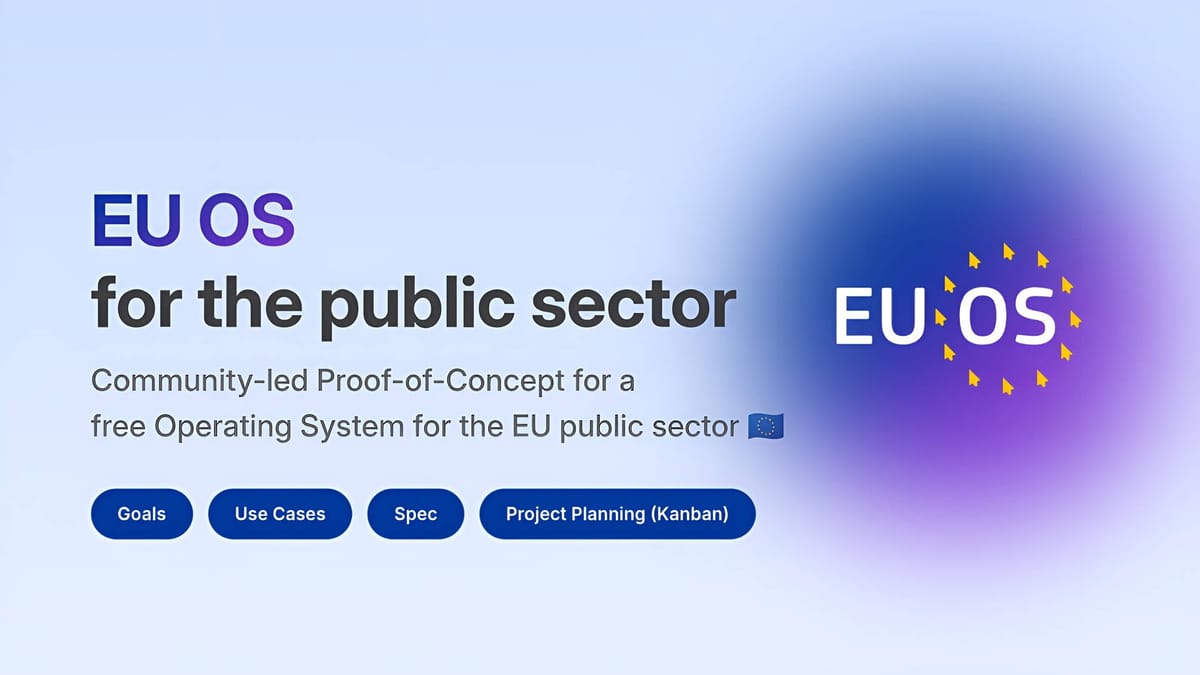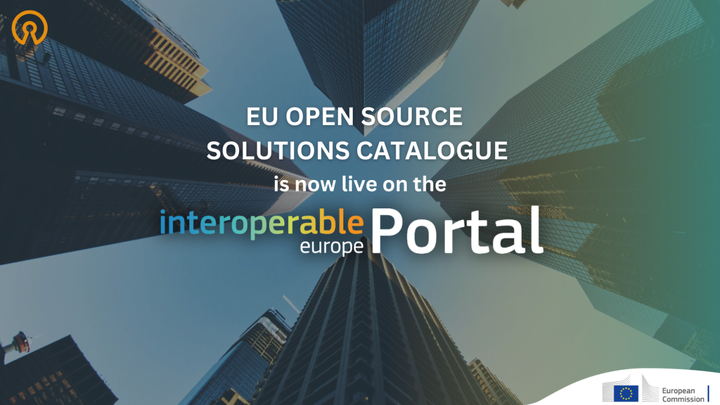Introducing EU OS, the Linux Distribution for Europe's Public Sector
EU OS is definitely an appealing project and aims in the right direction, stirring Europe towards its digital independence.

The idea of an operative system (from now on, OS) based on Linux and available for Europe's public sector is gaining traction at the moment. This is actually more than an idea; EU OS, a project led by Robert Riemann that aims to develop an homonym OS with that specific purpose, looks promising. The goal of this project is to implement this new OS in the public administration, on an effort to become less dependent on products such as Windows, which is developed by Microsoft. This effort represents a step forward towards the EU's digital sovereignty, since it would make it less reliant on US-based tech companies. As the project states in their Mastodon account:
In light of increased uncertainty on the reliability on the US, European democracies should strengthen their strategic autonomy: this also includes autonomy from #Microsoft #Windows in the public and private sector.
Now, the widespread implementation of this project would be a huge gain for the EU, both economically and strategically. The EU OS project actually claims to follow the initiative Public Money, Public Code, launched last year by the Free Software Foundation Europe and which, among other things, advocates for investing taxpayer's money not into proprietary software but into non-proprietary software, which results in a reduction of costs and major scalability - reducing even more further costs. In strategic terms, it means that the EU would gain the capacity to deploy its own systems without relying on third parties. More than that, as we tend to mention, open-source software is usually safer because it can be audited by everybody who wishes to do so, allowing the detection of vulnerabilities faster and ensuring that no back-doors, which allows to bypass default authentication methods, are present since they pose a serious security concern. In doing so, EU OS states that it follows the footsteps of similar initiatives across national states, which we will cover in another article devoted particularly to this topic.
Great, but what does this even mean?
Let's say broadly that software, that is, computer programs that give a set of instructions to a computer - whether that be a specific application, or a whole OS - can be divided into:
- Proprietary
- Open-source
- Free and open-source
The main difference between proprietary and open-source - whether free or not - is the publicity of the code. That is, in the context of a proprietary the user cannot see - and therefore cannot modify - the code of the program it uses. An example of this would be Microsoft Office. Simplifying, when it comes to open-source and free and open source, the software is usually distributed under a public license. In both cases, it means that most of the time, the code cannot only be inspected but also modified or even used as a base to develop something different. An example of this is LibreOffice, a "Microsoft-like" office suite. Another example of extremely successful open-source software, and the most important for what this article is concerned, is Linux. Linux was released for the first time in 1991, and while its pool of users remains relatively low compared to Windows and macOS, it is absolutely essential for cloud computing. Android, the mobile OS developed by Google, is also based on Linux.
Because of its open-source nature, we talk about Linux distributions, also known as distros. A Linux distribution is an OS that is based on the Linux kernel but differs from other also Linux-based distributions since the possibility to modify the code leads to several projects, each one developing its own OS, resulting in a wide range of options, each one with its own characteristics. Therefore, we can have distros like Ubuntu, Linux Mint, openSUSE, Arch Linux, Kali Linux, etcetera.
What's next?
The goal of EU OS is to gain the attention of the EU Commission, probably through the EU's Open Source Program Office. In their own words, besides continuing to develop the OS, they aim to:
convince the European Commission to host the project at https://code.europa.eu and take over some ownership (more is better)
It must be noted that the project does not seem to have any official endorsement yet, contrary to what it might look like. There have also been some concerns due to the fact that the EU OS project is based on Fedora, a Linux distribution maintained by Red Hat, which in turn is a subsidiary of IBM, a US-based company. Moreover, this decision can be quite intriguing considering the fact that there are other distributions being developed in the continent. One of the signalled issues regarding Red Hat was their decision, during the last year, to shut down CentOS (a free alternative of RHEL, a commercial Linux distribution developed by Red Hat), effectively forcing current users to migrate to the commercial version. Without entering details, some saw this as a betrayal of open-source principles since a Linux distribution that many individuals and organisations freely relied on suddenly stopped being available. So, one might wonder if a similar story could happen to Fedora and what the consequences would be for Fedora-based projects. That being said, this has not affected the development or release of Fedora so far, and overall, it is important not to overestimate EU OS' decision to use it while also not to downplay the role of Fedora's community in ensuring its adherence to open-source principles, so while to have Red Hat, and indirectly, IBM in the background might not be too appealing, there are reasons to be optimistic. After all, Fedora still has a longstanding reputation and a strong community behind. What is clear is that it's definitely too soon to draw significant conclusions.
In any case, we will actively monitor this and similar projects, as they represent in our view the proper strategy for Europe in order to achieve its digital sovereignty.

